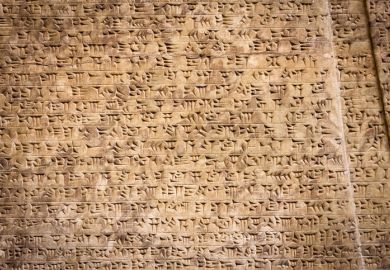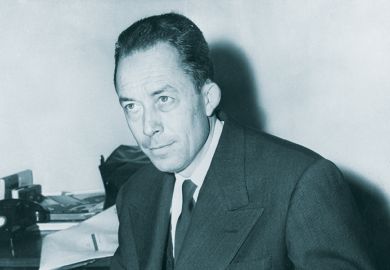In September 1680, Robert Knox returned home to London after an absence of 22 years. For almost all this period, he had been a virtual prisoner of the King of Kandy, the mountainous kingdom in the centre of Ceylon.
The following year, he published his remarkable story as An Historical Relation of the Island Ceylon, in the East Indies , describing his capture when he was barely 17 years old on his father's trading ship on the west coast of Ceylon in February 1660, and his subsequent incarceration. Though first a captive held in a village, he later became a Kandyan freeholder planting fruit and trees and rearing goats, pigs and chickens, who was permitted to travel throughout the kingdom selling his wares. Eventually, Knox and a fellow prisoner, Stephen Rutland, escaped by walking north from Kandy to the ancient city of Anuradhapura, and thence to the Arippu Fort on the Dutch-controlled northwestern coast. The Dutch sent them to Colombo, where the governor received them, before transporting them to Batavia; and from Java the two escapees sailed to England.
Knox began to write his account of Ceylon on the voyage home. Although he had a limited education and had had no access to writing materials for 19 years, he relearnt how to write and as a "man new borne" recorded the basic narrative of what became a work of some 100,000 words consisting of 189 folio-sized pages divided into four parts. The first of these is a general description of the island and its fauna and flora. The second concerns King Rajasingha of Kandy and his court, and other aspects of the Kandyan kingdom. The third describes the inhabitants of the entire island and their social organisation. The final part is autobiographical and explains how Knox fetched up in Ceylon. Overall, the book remains by far the most impressive document on Ceylon - non-fiction or fiction - ever published. I am lucky enough to own a first edition, and it is one of my most prized literary possessions.
Richard Boyle, who lives in Sri Lanka, has devoted the greater part of the past two decades to researching the cultural aspects of the British colonial period in Ceylon after the expulsion of the Dutch in 1796 and the takeover of Kandy in 1815. Four years ago, he began to assist the Oxford English Dictionary in revising the entries for words of Sri Lankan origin or association contained in the OED 's second edition. This work has now resulted in his own book, Knox's Words , which investigates the influence of Knox's book on the English language and on literature about Ceylon. Its lengthy subtitle is "A Study of the Words of Sri Lankan Origin or Association First Used in the English Language by Robert Knox and Recorded in the Oxford English Dictionary".
Only after the appearance of the dictionary in CD-Rom form in 1992 could Knox's major contribution to English be ascertained with accuracy. There are no fewer than 96 quotations from An Historical Relation of the Island Ceylon in the second edition of the OED, and Boyle gives an interesting analysis of their inclusion.
But the main scholarship in Boyle's labour of love goes into researching and explaining Knox's 26 "core words", as they appear or will appear in the third edition of the dictionary. These words, which do not necessarily adhere to Knox's original spellings, are: ambalama , betel-leaf, bo-tree, Buddha, dissava , gaur , illuk , kabaragoya , kangany , kittul , kurakkan , land-leech, murunga , musk-rat, perahera , polonga , poojah, rattan, rillow , talipot, talipot-leaf , tic-polonga , toran , vedda , vihara and wanderoo . While it is true that most of these words (especially those of Sinhalese origin) are restricted to usage in Sri Lanka, several have attained international currency.
Of the words restricted to Sri Lanka, tic-polonga is of particular interest to me - indeed, Boyle cites my book The Man-Eater of Punanai as an example of how the word has been used by writers in English since the time of Knox. In using the anglicised spelling, tick-polonga , in my book I admit that I may have made a mistake; tic-polonga is by far the most common spelling, taken from the Sinhalese tit-polonga . It is the name of one of the two most poisonous snakes in Sri Lanka (the other being the cobra), otherwise known as the Russell's viper. (The Sinhalese word tit-polonga means literally "spotted viper".) Knox's core words that achieved international usage in the 19th and 20th centuries include betel-leaf, bo-tree, Buddha, poojah and rattan. Of these, Buddha is the most universal and the word most widely associated with Sri Lanka. As Boyle notes: "It is apt that Knox's legacy should include the first occurrence in English literature of a word so hallowed by such a large percentage of the Island's population". "Buddha" is, of course, derived from the Sanskrit buddha , meaning "enlightened, awakened" and is the past participle of budh : "to awake, know, perceive".
English authors influenced by Knox include Daniel Defoe and Sir James Emerson Tennent, as well as Leonard Woolf, the former Ceylon civil servant who married Virginia; Woolf used tic-polonga in the second volume of his autobiography. More recently, my brother Michael Ondaatje used words from Knox in his two books on Ceylon published in 1983 and 2000: kabaragoya , kittul , perahera and talagoya . Boyle gives a painstaking discussion of all such references - he has garnered 650 quotations to illustrate the use of Knox's words - and deals, in separate chapters, with "The employment of Knox's words before the advent of British dominion over Ceylon", "Knox's powers of observation and his influence on later writers" and "Knox's Sinhalese vocabulary".
Boyle's thorough and excellent book cannot help but be absorbing for anyone interested in the multifaceted literature on old Ceylon. It should also be of much interest to inquisitive students of etymology wanting to know how the above-mentioned words appeared in English. They will not be disappointed. Knox's Words is spellbinding.
Christopher Ondaatje was born in Sri Lanka and is a council member of the Royal Geographical Society. He is working on a book about Leonard Woolf in Ceylon.
Knox's Words
Author - Richard Boyle
Publisher - Visidunu Prakashakayo (Sri Lanka)
Pages - 389 Available from Rare Books and Berry (info@rarebooksandberry.co.uk)
Price - £17.95
ISBN - 955 9170 67 8
Register to continue
Why register?
- Registration is free and only takes a moment
- Once registered, you can read 3 articles a month
- Sign up for our newsletter
Subscribe
Or subscribe for unlimited access to:
- Unlimited access to news, views, insights & reviews
- Digital editions
- Digital access to THE’s university and college rankings analysis
Already registered or a current subscriber? Login



